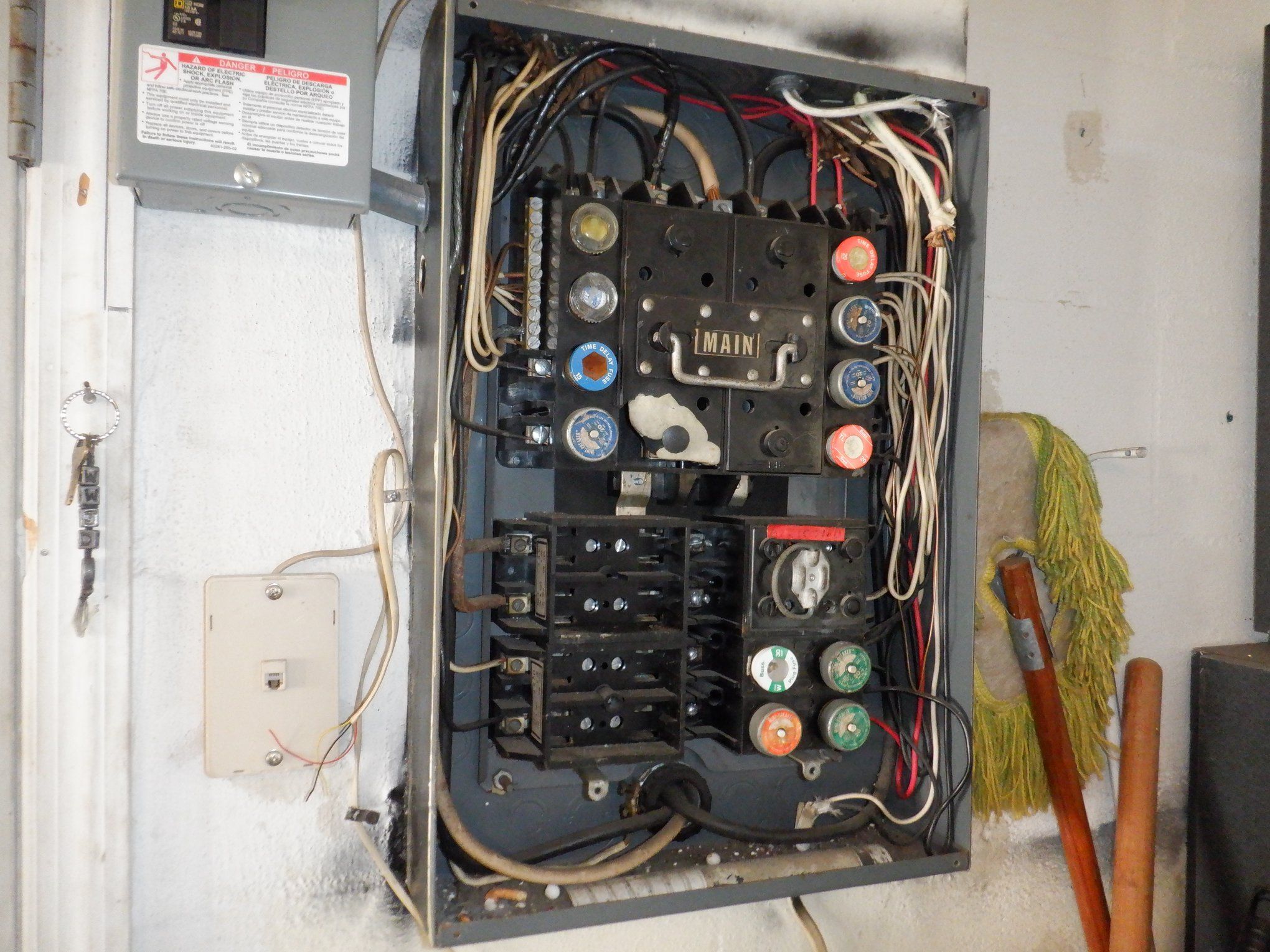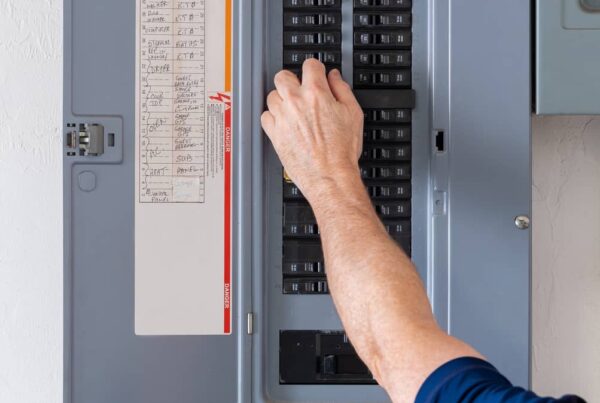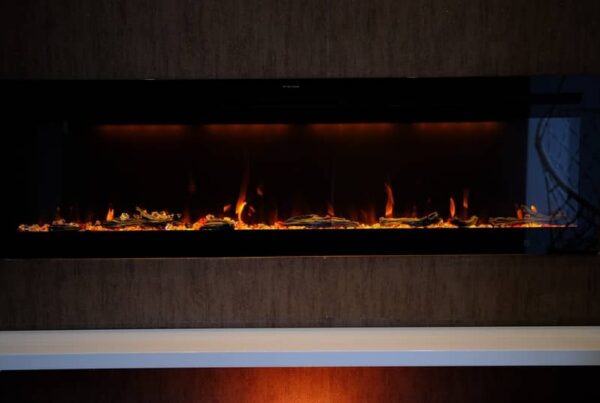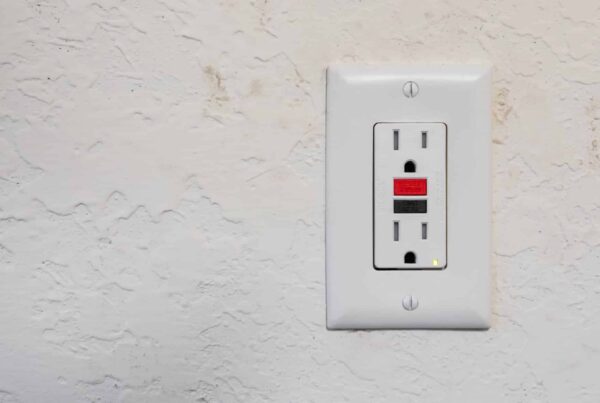
Many people mistakenly interchange the words fuse box and electrical panel. While they are both used to disconnect power and protect your home, they differ in many ways.
Let’s discuss the differences between fuse boxes and electrical panels. Then, talk about which electrical shutoff system you should have.

What Is A Fuse Box?
Fuse boxes are metal boxes used to store fuses, which are safety devices that shut-off power when power exceeds the fuse’s design. Fuses work by powering electrical current through a metal strip. If the electrical current exceeds the limitations of the metal strip, the strip melts and ceases electrical power.
Fuses must be replaced if you “blow” a fuse.
History of Fuse Boxes
Fuse boxes were commonly installed in homes before the 1960’s. Today, a majority of them have been replaced to electrical panels.
The Problem With Fuse Boxes
Due to their age, fuse boxes are mostly likely unmaintained and have numerous electrical wiring issues, such as cloth wiring or knob & tube.
Additionally, since fuses have to be replaced every time there is a blown fuse, many electricians upgraded/recommended homeowners install electrical panels.
Lastly, fuses quickly received a bad rap with insurance companies since homeowners would replace fuses with sticks of copper or larger than necessary fuses in order to stop blowing fuses. Replacing fuses with oversized fuses or pieces of copper can quickly become hot and start a fire if the overloaded current continues to flow rather than shut-off.
Today, it is difficult to obtain insurance with fuse boxes.

What Are Electrical Panels?
Electrical panels are metal boxes, that have a panel cover, and store circuit breakers. Circuit breakers are mechanical switches that automatically detect current overage.
Circuit breakers do not have to be replaced when they are triggered by a current overage. Rather, the switch can just be reset.
Just like fuses, however, circuit breakers have specific sizes for different circuits and can become oversized. These defects are commonly found on a home inspection or four-point inspection.
The Problem With Electrical Panels
Electrical panels are not free from issues either though. Some electrical panels have either been recalled or there is a known risk in which some insurance companies will not insure your home with these panels.
The following electrical panel brands have known issues or may be recalled entirely:
The above electrical panels have instances of the following:
- Circuit breakers failing to shut-off during current overload.
- Power still flowing through circuit breakers that are turned off.
- Loose circuit breaker connections.
- Overheating Bus Bars
How to tell if a circuit breaker is bad.
Should You Upgrade Your Fuse Box to an Electrical Panel?
Fuse boxes are not inherently dangerous. However, improperly maintained fuse boxes can be. Most homeowners do not have the time or experience to properly maintain their fuse box.
Electrical panels with circuit breakers are today’s standard of electrical equipment, but that does not mean they are free of issues.
Homeowners should consult a licensed electrician before replacing or upgrading their current system.
If you are purchasing a home, your home inspector should be able to report on the electrical system and provide recommendations.
Cost of Replacement
Upgrading or replacing your current system depends on many factors like the location and size of your home. However, on average, homeowners can expect a bill of around $1,500.
The Bottom Line
Fuse boxes are generally not accepted in today’s market by insurance companies and electricians. While they could be safe, many are unprofessionally repaired or unmaintained.
Electrical panels are today’s standard, but not all electrical panels are considered equal.
Have a question? Comment below!



